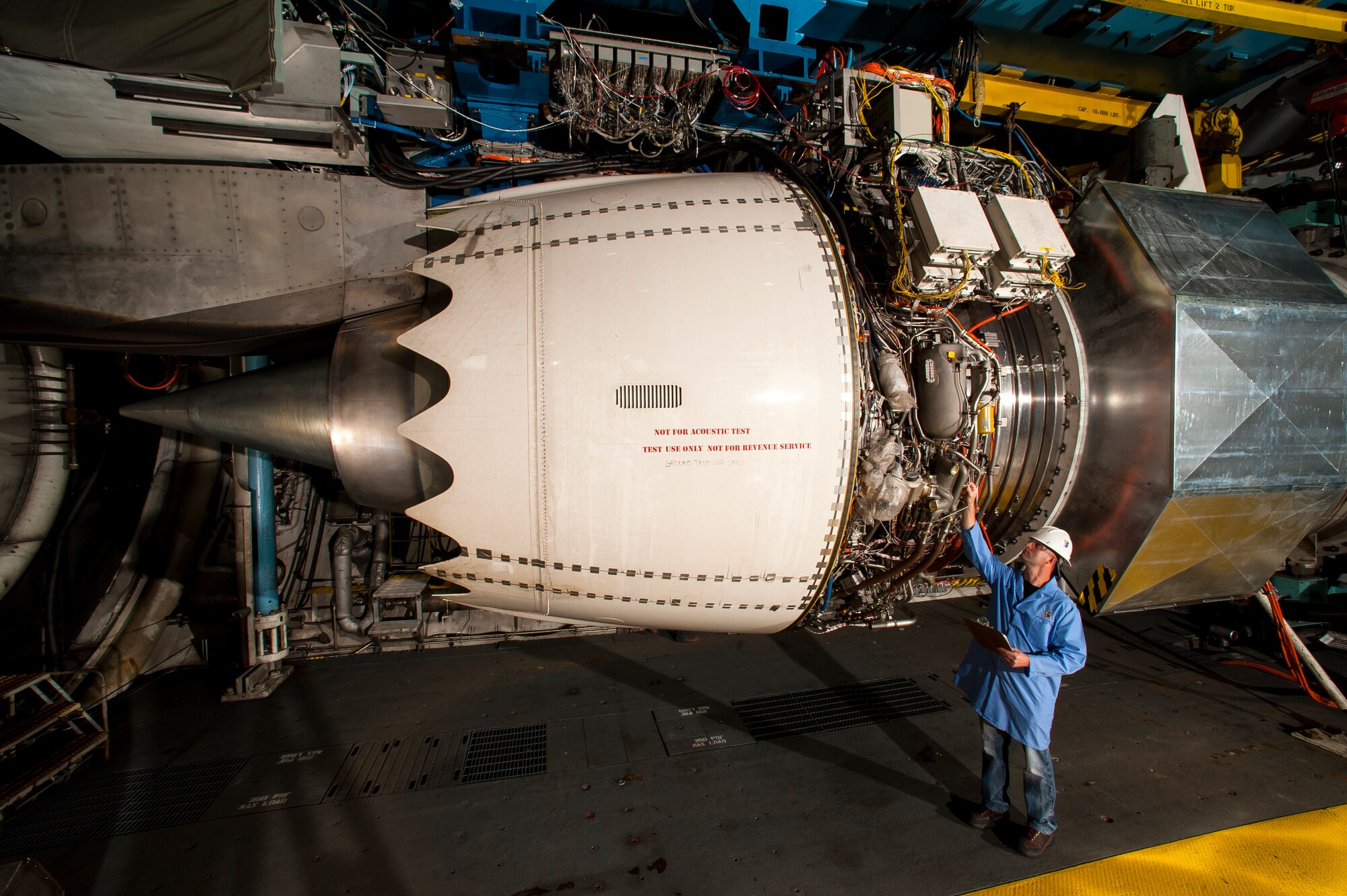EN 373 Cruise Thrust Rating Testing
The EN 373 standard, developed by the European Committee for Standardization (CEN), provides a framework for determining the cruise thrust rating of jet and turboprop engines. This test is crucial in ensuring that propulsion systems meet stringent performance criteria set forth by aviation regulations. Cruise thrust represents the engine's ability to maintain steady flight at cruising altitude without significant changes in speed or altitude, which directly impacts fuel efficiency and overall aircraft performance.
The testing process involves placing an engine into a specialized test rig designed to simulate the operating conditions of cruise flight. The rig includes a variety of sensors that measure parameters such as thrust output, exhaust gas temperature (EGT), pressure ratio, and specific fuel consumption (SFC). These measurements are critical for assessing not only compliance with EN 373 but also for optimizing engine performance.
During the test, the engine is operated at a steady state to ensure that all components are functioning correctly under cruise conditions. The data collected from these tests can be used by engineers to fine-tune engine settings and improve fuel efficiency without compromising safety or power output. Compliance with EN 373 is mandatory for manufacturers who wish to sell their engines in the European Union, making this testing service indispensable.
Engine performance during cruise flight is particularly critical due to its prolonged duration. A slight improvement in thrust efficiency can lead to substantial fuel savings over time, which is a key consideration in today's environmentally conscious aviation industry. By accurately measuring and reporting cruise thrust ratings, our laboratory ensures that engines meet not only regulatory requirements but also contribute to more sustainable flight operations.
Our team of experts uses state-of-the-art equipment calibrated according to the latest EN 373 standards to ensure precise measurements. This includes high-precision load frames, temperature sensors, and data acquisition systems capable of capturing minute changes in engine performance. Our compliance with ISO/IEC 17025 ensures that our results are accurate, reliable, and internationally recognized.
- Accurate measurement of thrust output under cruise conditions
- Compliance with EN 373:20XX standards for all engine types
- Use of ISO/IEC 17025 accredited laboratory equipment
- Data analysis and reporting tailored to client needs
In summary, EN 373 cruise thrust rating testing is a vital component in the design, development, and certification process for aircraft propulsion systems. By providing accurate, compliant test results, we help ensure that engines perform efficiently while meeting regulatory requirements.
Why It Matters
Accurate determination of cruise thrust is crucial for several reasons:
- Regulatory Compliance: Meeting EN 373 standards ensures that engines can be legally marketed in the European Union and other regions adopting these regulations.
- Fuel Efficiency: Optimizing thrust during cruise flight leads to reduced fuel consumption, which is a key factor in reducing operational costs for airlines.
- Safety: Ensuring that engines operate within specified parameters helps prevent malfunctions and enhances overall aircraft safety.
- Environmental Impact: By improving efficiency, cruise thrust testing contributes to the reduction of carbon emissions from aviation.
In addition to these benefits, accurate cruise thrust rating testing also aids in the development of more advanced propulsion systems. Engineers can use the data obtained during testing to refine designs and improve performance across various flight conditions.
Why Choose This Test
- Accurate Compliance: Our laboratory is ISO/IEC 17025 accredited, ensuring that all tests are conducted to the highest standards.
- State-of-the-Art Equipment: We use advanced load frames and data acquisition systems calibrated according to EN 373:20XX specifications.
- Expertise in Aviation Testing: Our team of engineers has extensive experience in propulsion system testing, providing clients with valuable insights into engine performance.
- Prompt Reporting: Results are delivered quickly to ensure that manufacturers can make informed decisions promptly.





